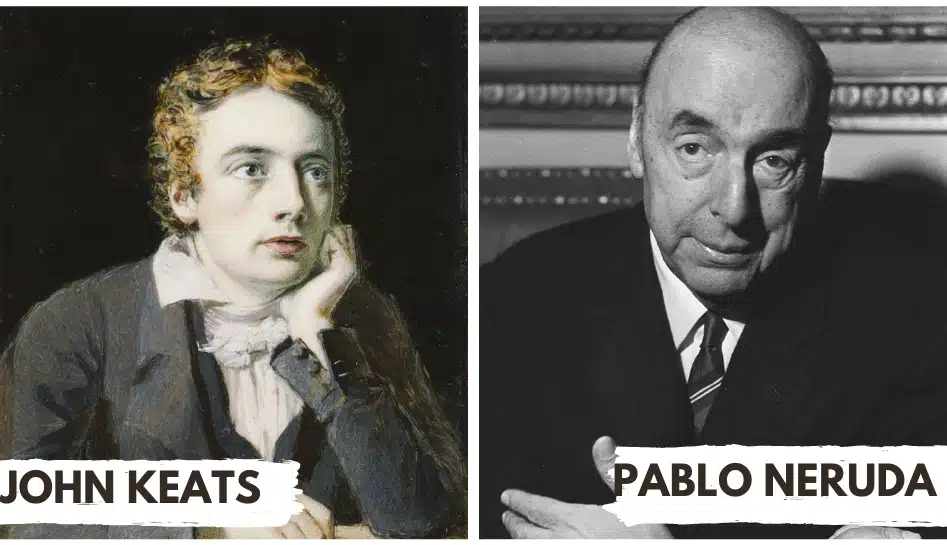A growing body of research supports the poetry’s potential healing benefits
Poetry heals, as proven by a growing body of research from around the world.
On January 18, the Psychiatric Times published an interview with Dr Richard M. Berlin, an instructor in psychiatry at the University of Massachusetts Medical School, who has been writing poetry for the journal for the past 25 years.
Titled “25 Years of Poetry of the Times,” the interview celebrates Berlin’s stint with the Psychiatric Times and the overall health benefits of poetry.
Berlin sums it up beautifully: “I have come to experience medical practice the way Pablo Neruda experienced poetry: a domain that includes, “the decrees of touch, smell, taste, sight, hearing, the lust for justice, sexual desire, the sound of the ocean, nothing deliberately excluded, nothing deliberately accepted, entrance into the depth of things in a headlong act of love…”
“And yes, being a poet has a big impact on my practice of psychiatry, and psychiatry has had a big impact on my poetry writing, especially my experience providing psychotherapy, where it is so important to pay attention to flow, to allow themes to develop, and not interrupt the process too quickly,” Berlin says.
The Journal of the American Medical Association (JAMA) begins its editorial “Poetry and Medicine and New Poetry Commentaries” with a quote from beloved English Romantic poet John Keats.
“I find that I cannot exist without poetry” goes the first line of the editorial, which is attributed to John Keats, who himself was trained as a physician.
“Keats practiced medicine for only 7 years before abandoning the profession. The medicine of his day, in early 19th-century London, faced dire challenges we might recognize as not unlike those of our times: long work hours, inadequate resources, harmful superstition and widespread misinformation, rampant and frequently fatal infectious disease,” reads JAMA article published on January 24.
Keats himself would eventually succumb to tuberculosis at just 25. “Surely such onerous work conditions contributed to his defection from the hospital and propelled him toward the poetry he imagined could be healing, even as he suspected that he was slowly dying from the dread consumption whose symptoms his letters show he knew all too well,” the editorial explains.
The article contends that there is now an emerging body of research that supports John Keats’ profound intuitions about poetry’s possible healing benefits.
“But these studies may be asking poetry to prove itself in ways it should not have to. What lately seems the most compelling evidence of an abiding link between poetry and medicine is the volume of poems submitted to JAMA, written by scientists, clinicians, patients, and family members; tellingly, the number of incoming poetry manuscripts rose even higher during the worst of the COVID-19 pandemic,” the article states.
Dr Berlin in his interview explains “poetry and medicine definitely overlap.”
He says when he first started writing, his father would suddenly become present in the poems: “I would write few lines about something random, like playing Little League baseball, and there he was, sitting in the stands! But I knew from my psychotherapy practice that I should let the words unfold and not self-censor. As a psychotherapist, creating metaphors like a poet is a powerful way to reframe a patient’s mood, behavior, or life story.”
Dr Berlin urges writer doctors to follow Stephen King’s encouragement to “read a lot, write a lot;” and to follow the advice of Anne Lamott: “Put your butt in the chair every day for 45 minutes and write a shitty draft. Because writing happens only when you write, but not when you just think about writing.”
Berlin’s favourite poem is by Pablo Neruda, which ends like this:
“…..And I, infinitesimal being,
drunk with the great starry
void, likeness, image of mystery,
felt myself a pure part of the abyss,
I wheeled with the stars,my heart broke loose on the wind.”
Read More : https://h-leads.com/the-diseases-delhi-searched-online-in-2022/


















Add Comment